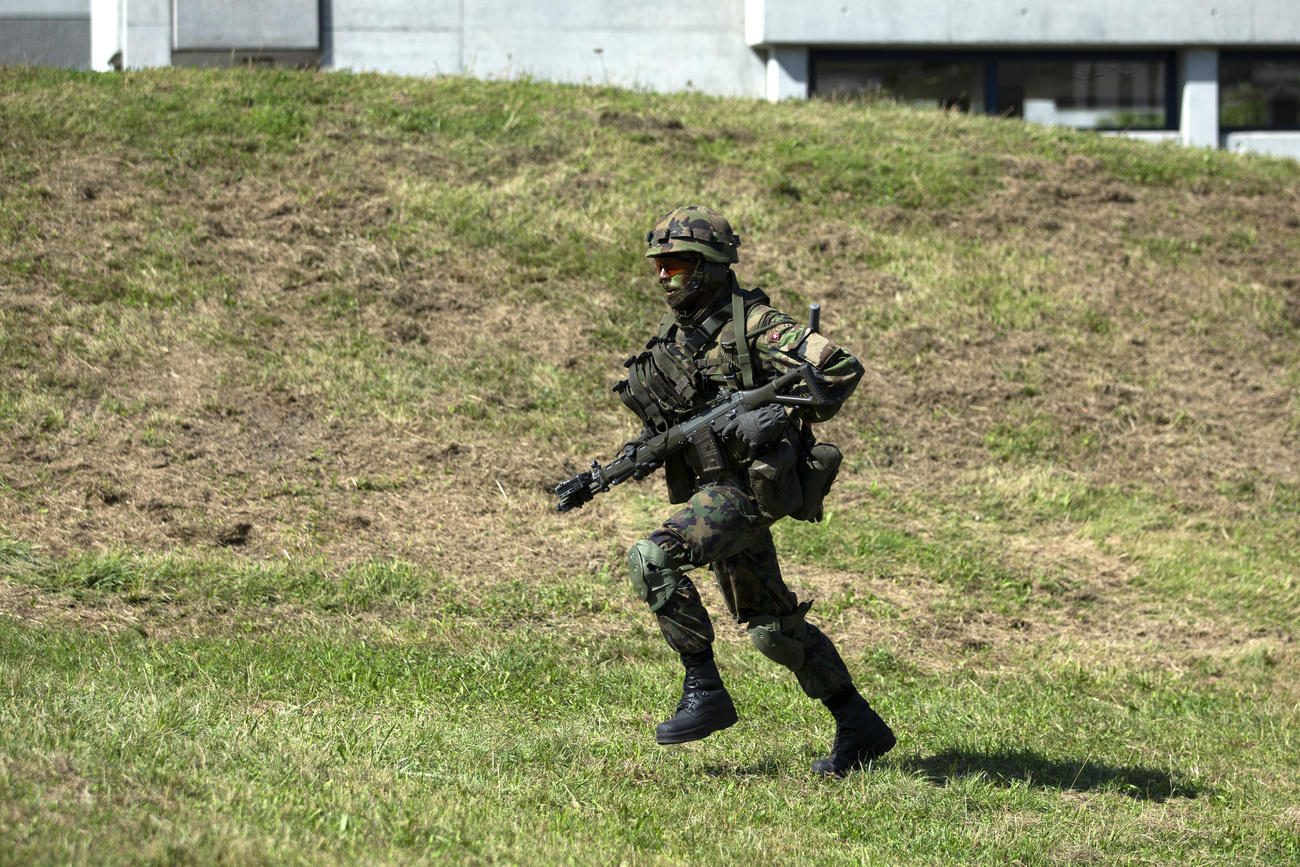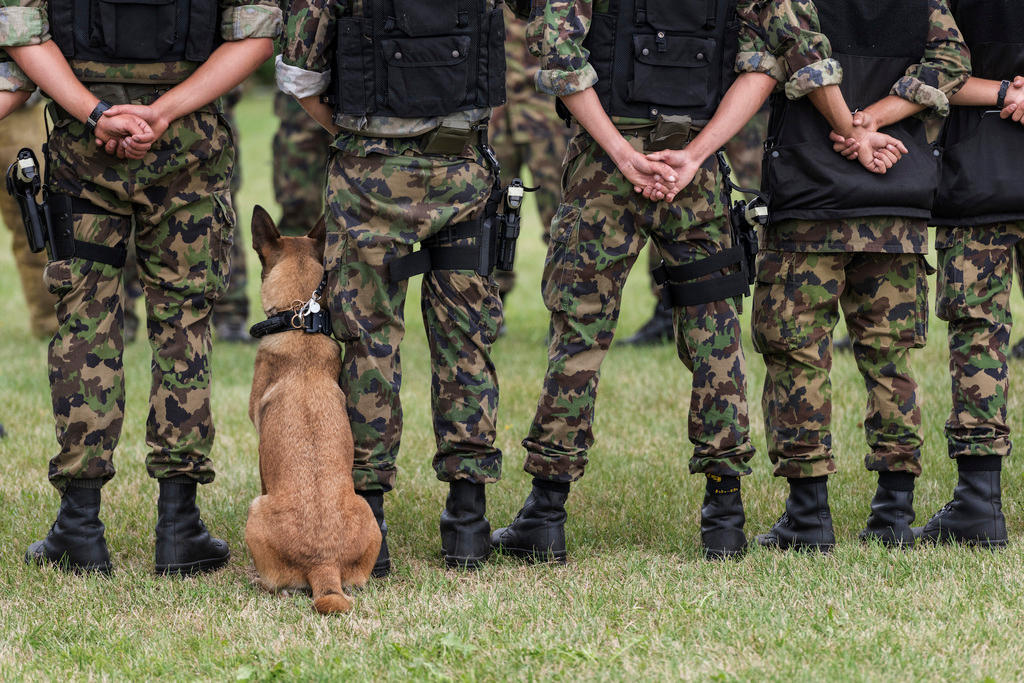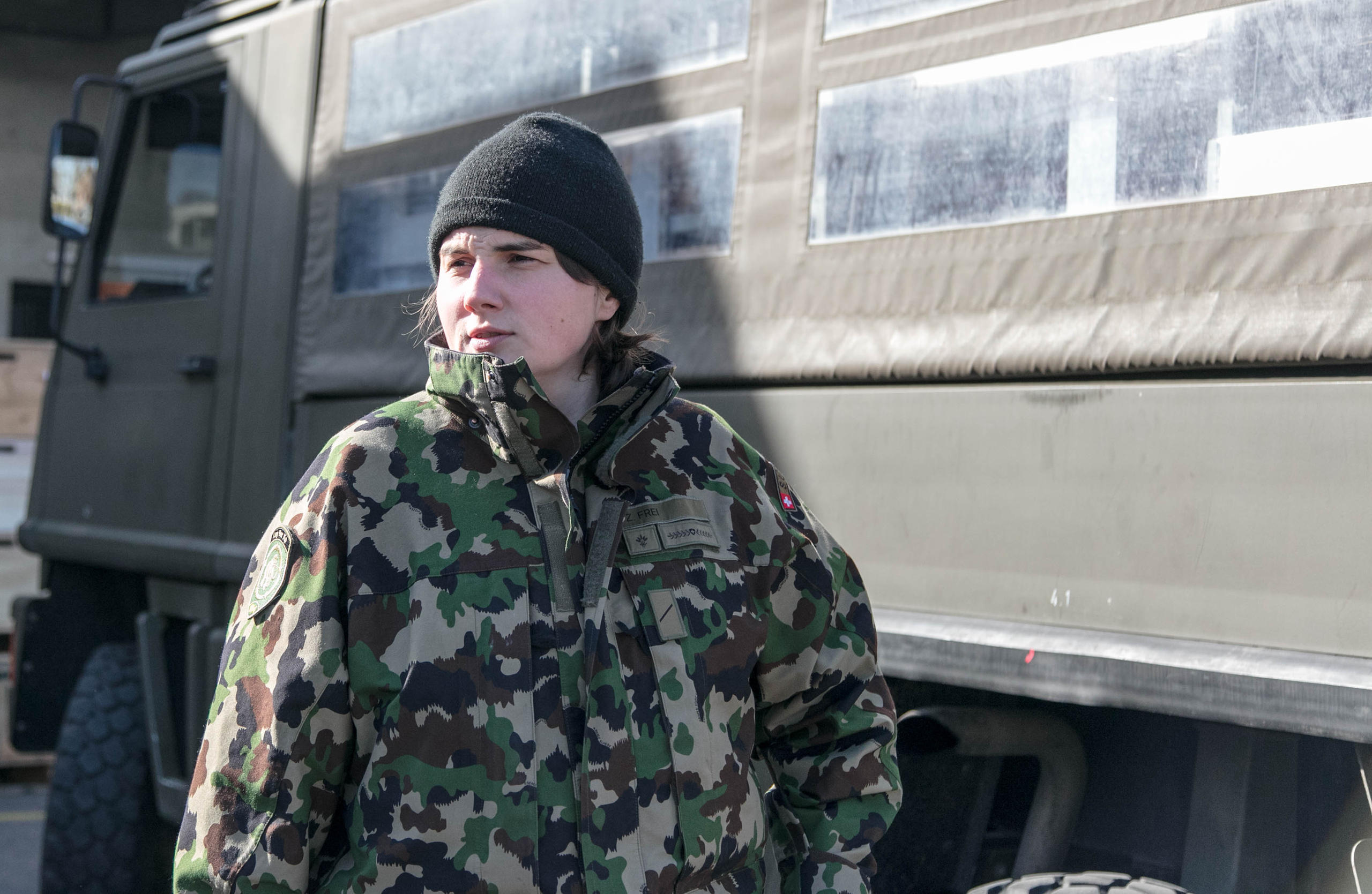Is it possible to refuse military service in Switzerland?

Switzerland is one of few European countries that has maintained the tradition of compulsory military service, despite a vote 30 years ago over whether to do away with the army altogether. Before the option of civilian service was introduced in 1996, thousands of conscientious objectors were imprisoned.
“Switzerland has no army, Switzerland is an army”: this is how the Swiss government summed up its position as the country prepared to vote on an initiative on November 26, 1989 to do away with the Swiss military. Defence of the country is part and parcel of national identity and every man with a Swiss passport must do his bit, the government argued.
In the end, more than 30% of voters said they wanted to do away with the Swiss army, a result that the initiating Group for Switzerland without an Army (GSoA) External linkhailed as a great success. But in a similar GSoA-initiated vote in 2013 on whether to abolish conscription in favour of a career military, just over 25% of voters came out in favour.
Today, complete with a system of refresher courses, military service for Swiss men lasts until the age of 44. On paper at least, the Swiss army is one of the largest in Europe, with over 600,000 soldiers.
With this in mind, conscientious objection was once perceived to be a threat to the state and was punished with severe prison sentences. Despite this threat, the number of conscientious objectors increased significantly, particularly from the end of the 1960s.
Old model questioned
Between 1968 and 1996, some 12,000 men were sentenced to prison for conscientious objection to military service. This was the subject of regular criticism from agencies such as Amnesty International. Two popular initiatives to introduce civilian service were rejected by voters in 1974 and 1984.
Things only changed after the fall of the Berlin Wall and a popular initiative to abolish the army that attracted support from a third of the population. A substantial number of voters had questioned the old model of national defence. In 1992, the Swiss electorate said yes to a constitutional amendment to introduce civilian service, which was implemented in 1996. With this vote, Switzerland introduced alternative civilian service, but much later than most other European countries.
Anyone who wanted to opt for civilian service first had to convince a commission that they had a genuine conscientious reason for not joining the military. This examination of conscience was abolished in 2009.
Despite civilian duties lasting one and a half times longer than military service, it has seen a considerable increase in popularity. The number of people opting for this duty rose from about 1,500 per year in the 1990s to 6,720 in 2009.
Law change?
In 2011, the government intervened to make civilian service less attractive and to reduce the number of applications. In October last year, it presented a new package of measures to make civilian service more difficult, especially for soldiers who have already completed part of their military service.
The changes were approved by one parliamentary chamber, the Senate, in September. But even if they are also passed by the House of Representatives, opponents could force a referendum to prevent the proposal.
From a legal point of view, military service and alternative civilian service are not equivalent. The Swiss constitution obliges Swiss men to perform military service and refers to the law for alternative civilian service.
According to the Military Criminal Code, refusal of military service remains a criminal offence if admission to civilian service is also refused or the application is not submitted in time. The same applies to refusing civilian service. However, such cases are very rare and the sanctions are usually mere fines.
No rehabilitation
In September 2018, Green Party parliamentarian Lisa Mazzone submitted a motion to rehabilitate conscientious objectors. It calls for criminal sentences, handed down between 1968 and 1996 against those who refused military service on grounds of conscience, to be lifted.
Mazzone cited a 1967 resolution of the Council of Europe, referring to the European Convention on Human Rights, which called on member states to grant their citizens the right to conscientious objection to military service.
In September 2019, the Swiss government decided against Mazzone’s motion.
Translated from German by Matt Allen

In compliance with the JTI standards
More: SWI swissinfo.ch certified by the Journalism Trust Initiative













You can find an overview of ongoing debates with our journalists here . Please join us!
If you want to start a conversation about a topic raised in this article or want to report factual errors, email us at english@swissinfo.ch.